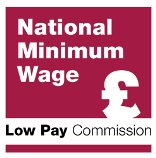Low Pay Commission 2019 consultation questions
Updated 12 February 2020
1. Consultation questions
Please consider the questions below when responding to the LPC’s 2019 consultation. You can answer the questions that relate to you directly or use them as a starting point for your submission. If there is anything you would like to tell us that is not covered by the questions, do not hesitate to do so.
2. About you
- Please provide some information about yourself or your organisation. If possible, include relevant details about your location, the occupation or sector you are involved in, your workforce if you are an employer (including number of NMW/NLW workers), and anything else you think is relevant.
3. Economic Outlook
- What are your views on the outlook for the UK economy, including employment and unemployment levels, for the period up to April 2020?
- What are your views on the current state of the labour market? Has the labour market tightened over the past year? If you are an employer, what has been your experience of filling vacancies?
- What has been your experience of wage growth and inflation in the last year and what do you forecast for the next couple of years?
4. Impact of the National Living Wage
- What has been the impact of the NLW since April 2016? The rate is currently £7.83 and will rise to £8.21 in April 2019.
- Our critical interest is in views or data on the NLW’s effects on employment, hours and earnings.
- We are also very interested in evidence on pay structures, differentials and benefits (including premium pay and impacts on parts of the workforce above the NLW), outsourcing, progression, job moves, training, contract type, business models, productivity (and the different ways in which productivity improvements can be achieved), prices or profits.
- To what extent has the NLW particularly affected certain occupations or industries, types of firms (small, large etc), regions or groups (for example women, ethnic minorities, migrant workers etc)? April 2020 rates of the NLW and other minimum wage rates
- Under our latest forecasts, the target April 2020 rate for the NLW would be £8.67. Do you agree that the LPC should seek to meet this target?
- What do you predict would be the effects of a rate of £8.67 in 2020 (earnings, employment, competitiveness)?
- At what level should the 21-24 Year Old Rate be set in April 2020?
- At what level should each of the other rates of the minimum wage be set in April 2017 – that is, for 16-17 year olds, for 18-20 year olds, for apprentices, and the Accommodation Offset?
- What, if any, are the barriers to larger increases in the 21-24 Year Old rate, 18-20 Year Old Rate, 16-17 Year Old Rate and Apprentice Rate?
5. The minimum wage beyond 2020
In the October 2018 Budget, the Chancellor stated:
Next year we will need to give the LPC a new remit beyond 2020. We will want to be ambitious with the ultimate objective of ending low pay in the UK but we will also want to be careful – protecting employment for lower paid workers. So we will engage responsibly with employers, the TUC, and the LPC itself over the coming months gathering evidence and views to ensure we get this right – and I will confirm the final remit at the Budget next year.
HM Treasury noted that the OECD define relative low pay as two-thirds of median earnings.
- Reflecting on your experience of the NLW since its introduction in 2016, what lessons do you think should be learned for the period after 2020?
- Given the Chancellor’s statements in the 2018 budget, what are your views on the future trajectory of the NLW and other NMW rates after 2020? What considerations should inform this?
6. 21-24 year olds
- What has been the effect of the minimum wage and the NLW on workers aged 21-24 and what effect do you think this has had on their employment prospects?
- To what extent are firms using the 21-24 Year Old Rate (set at £7.38 since April 2018 and rising to £7.70 in April 2019)?
7. Young people and apprentices
- What do you think has been the effect of the minimum wage on young people, and on their employment prospects?
- What has been the effect of the Apprentice Rate on the pay, provision and take-up of apprenticeship places, and training volume and quality?
- What are your views on the Apprentice Rate given the substantial policy changes to apprenticeships in England? Should the design of the Apprentice Rate change in response? If so, how?
- What influence do other policies – for example, National Insurance and/or the Apprenticeship Levy – have on employers when deciding whether to employ young workers or apprentices?
8. Compliance and enforcement
- What issues are there with compliance with the minimum wage? Has the NLW affected compliance and enforcement? Are there any other trends, for example in particular sectors or groups?
- What comments do you have on HMRC’s enforcement work? What is your opinion on the quality and accessibility of the official guidance on the NLW/NMW?
- What more could be done to improve compliance with the NLW/NMW?
- What are your views on the Accommodation Offset and the extent to which it is protecting low-paid workers? What difference, if any, have the increases in the rate since 2013 made to the provision of accommodation?

